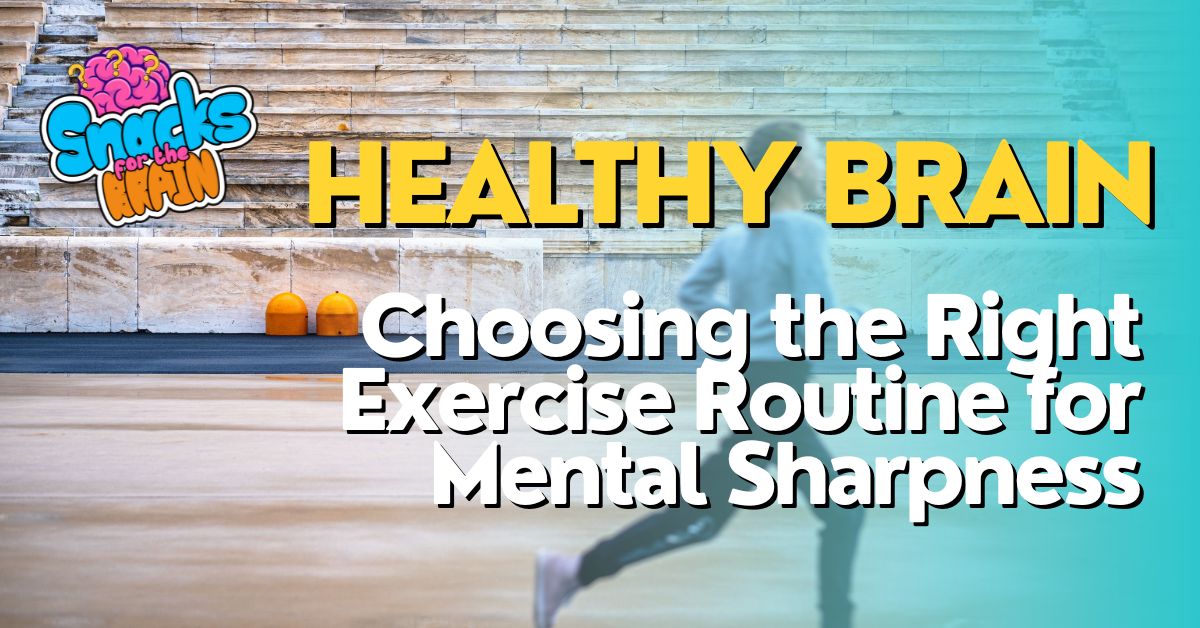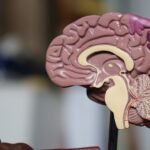Brain games and puzzles have gained popularity in recent years as a way to improve cognitive functioning and mental health. These activities offer a fun and engaging way to challenge the brain, keeping it sharp and agile. Cognitive functioning, which includes memory, attention, and problem-solving skills, is crucial for daily functioning and overall well-being. By incorporating brain games and puzzles into our daily routine, we can enhance our cognitive abilities and promote mental health.
Key Takeaways
- Brain games and puzzles can enhance cognitive functioning.
- Puzzle solving can reduce stress and anxiety.
- Brain games can improve memory and concentration.
- Puzzles can boost creativity and problem-solving skills.
- Group puzzle activities can strengthen social connections.
Enhancing Cognitive Functioning Through Brain Games and Puzzles
Brain games and puzzles have been shown to improve cognitive functioning by stimulating various areas of the brain. These activities require mental effort, which helps to strengthen neural connections and improve overall brain function. For example, solving crossword puzzles or playing Sudoku can enhance memory and problem-solving skills. These games require the brain to recall information and think critically, which can improve cognitive abilities over time.
There are many popular brain games and puzzles that can be enjoyed by people of all ages. Some examples include word search puzzles, jigsaw puzzles, memory games, and logic puzzles. These activities challenge different aspects of cognitive functioning, such as attention, memory, and problem-solving skills. By regularly engaging in these games, individuals can improve their cognitive abilities and maintain mental sharpness.
Reducing Stress and Anxiety Through Puzzle Solving
Puzzle solving has been found to be an effective way to reduce stress and anxiety. When we engage in puzzle solving, our attention becomes focused on the task at hand, allowing us to temporarily forget about our worries and concerns. This shift in focus can help to calm the mind and promote relaxation.
Additionally, puzzle solving activates the brain’s reward system, releasing dopamine, a neurotransmitter associated with pleasure and reward. This release of dopamine can help to alleviate stress and anxiety, promoting a sense of well-being.
Reducing stress and anxiety is crucial for maintaining good mental health. Chronic stress has been linked to a variety of mental health issues, including depression and anxiety disorders. By incorporating puzzle solving into our daily routine, we can effectively manage stress and promote mental well-being.
Improving Memory and Concentration with Brain Games
Brain games are particularly effective at improving memory and concentration. These games require the brain to recall information, which helps to strengthen neural connections associated with memory. By regularly engaging in memory-based brain games, individuals can improve their ability to remember information and enhance their overall memory functioning.
Concentration is also a key aspect of cognitive functioning that can be improved through brain games. Many brain games require sustained attention and focus, which can help to improve concentration skills over time. By regularly challenging our concentration abilities through brain games, we can enhance our ability to stay focused and attentive.
Some examples of brain games that target memory and concentration include memory matching games, Simon Says, and the game «I Spy.» These games require individuals to remember information or pay close attention to details, helping to improve memory and concentration skills.
Boosting Creativity and Problem-Solving Skills with Puzzles
Puzzles are a great way to boost creativity and problem-solving skills. When we engage in puzzle solving, we are presented with a challenge that requires us to think outside the box and come up with creative solutions. This process of problem-solving stimulates the brain’s creative centers, helping to enhance creativity.
Additionally, puzzles often require individuals to think critically and analytically. This type of thinking helps to improve problem-solving skills by encouraging individuals to approach challenges from different angles and consider multiple solutions.
There are many puzzles that specifically target creativity and problem-solving skills. Some examples include riddles, brainteasers, and lateral thinking puzzles. These puzzles require individuals to think creatively and come up with innovative solutions, helping to boost creativity and problem-solving abilities.
Strengthening Social Connections through Group Puzzle Activities

Group puzzle activities can be a great way to strengthen social connections and promote mental health. When we engage in puzzle solving with others, we are able to connect and interact in a meaningful way. This social interaction can help to reduce feelings of loneliness and isolation, which are common risk factors for mental health issues.
Furthermore, group puzzle activities often require individuals to work together and collaborate. This collaboration fosters a sense of teamwork and cooperation, which can enhance social connections and promote a sense of belonging.
Some examples of group puzzle activities include escape rooms, group jigsaw puzzles, and multiplayer online puzzle games. These activities provide opportunities for individuals to come together and engage in meaningful social interaction while also challenging their cognitive abilities.
Fostering a Sense of Achievement and Self-Efficacy with Brain Games
Brain games can foster a sense of achievement and self-efficacy, which are important factors in promoting mental health. When we successfully complete a brain game or solve a challenging puzzle, we experience a sense of accomplishment and pride. This sense of achievement can boost our self-esteem and confidence, leading to improved mental well-being.
Additionally, brain games provide opportunities for individuals to set goals and track their progress. By setting goals and working towards them, individuals can develop a sense of purpose and motivation. This sense of purpose can contribute to overall mental well-being.
It is important to note that the sense of achievement and self-efficacy derived from brain games is not dependent on winning or being the best. Instead, it is about personal growth and improvement. By focusing on personal progress rather than external validation, individuals can foster a healthy sense of achievement and self-efficacy.
Enhancing Brain Plasticity and Neuroplasticity with Puzzles
Puzzles have been found to enhance brain plasticity and neuroplasticity. Brain plasticity refers to the brain’s ability to change and adapt throughout life, while neuroplasticity refers to the brain’s ability to form new neural connections.
When we engage in puzzle solving, we are actively stimulating the brain and challenging its existing neural connections. This stimulation helps to strengthen existing connections and form new ones, enhancing brain plasticity and neuroplasticity.
By regularly engaging in puzzle solving, individuals can promote the growth and development of their brain, leading to improved cognitive functioning and overall mental health.
Delaying Age-Related Cognitive Decline with Brain Games
Brain games have been shown to delay age-related cognitive decline. As we age, our cognitive abilities naturally decline. However, research has found that engaging in mentally stimulating activities, such as brain games, can help to slow down this decline.
By regularly challenging our cognitive abilities through brain games, we can keep our brains active and engaged, helping to maintain cognitive functioning as we age. This is particularly important for older adults, as cognitive decline is a common risk factor for mental health issues such as dementia and depression.
Improving Mental Health and Well-Being with Puzzle Solving
Puzzle solving has been found to improve mental health and well-being in a variety of ways. As mentioned earlier, puzzle solving can reduce stress and anxiety by promoting relaxation and releasing dopamine. This can help to alleviate symptoms of stress and anxiety disorders, promoting a sense of calm and well-being.
Additionally, puzzle solving provides a sense of accomplishment and satisfaction, which can boost self-esteem and improve overall mental well-being. The process of solving a puzzle also requires focus and concentration, which can help to quiet the mind and promote mindfulness.
Furthermore, puzzle solving can be a form of self-care and a way to practice self-compassion. By taking the time to engage in an enjoyable activity like puzzle solving, individuals can prioritize their own well-being and take a break from the demands of daily life.
Promoting a Growth Mindset and Lifelong Learning through Brain Games
Brain games can promote a growth mindset and lifelong learning. A growth mindset is the belief that our abilities and intelligence can be developed through effort and practice. By engaging in brain games, individuals are actively challenging themselves and seeking opportunities for growth and improvement.
Furthermore, brain games provide opportunities for lifelong learning. These games often require individuals to learn new strategies, techniques, and information. By regularly engaging in brain games, individuals can continue to learn and expand their knowledge throughout their lives.
A growth mindset and lifelong learning are important factors in promoting mental health. They encourage individuals to embrace challenges, persist in the face of setbacks, and seek opportunities for personal growth. By incorporating brain games into our daily routine, we can foster a growth mindset and promote lifelong learning.
In conclusion, brain games and puzzles offer a wide range of benefits for cognitive functioning and mental health. These activities can enhance cognitive abilities such as memory, concentration, creativity, and problem-solving skills. They can also reduce stress and anxiety, strengthen social connections, foster a sense of achievement and self-efficacy, enhance brain plasticity and neuroplasticity, delay age-related cognitive decline, improve mental health and well-being, and promote a growth mindset and lifelong learning.
Given the numerous benefits of brain games and puzzles, it is important to incorporate them into our daily routine. Whether it’s solving a crossword puzzle during breakfast or playing a brain game app during lunch break, finding time for these activities can have a positive impact on our cognitive functioning and mental health. So why not challenge yourself with a brain game or puzzle today? Your brain will thank you!
If you’re interested in improving your memory, you might want to check out this article on «Techniques to Improve Your Memory» from Intelligence Snacks & Hacks. This informative piece offers valuable tips and strategies to enhance your memory skills, which can be particularly beneficial when engaging in brain games and puzzles. Whether you’re looking to remember important information for work or simply want to sharpen your cognitive abilities, this article provides practical techniques that can help you achieve your goals. So why not give it a read and start boosting your memory power today? (source)
FAQs
What are brain games and puzzles?
Brain games and puzzles are activities that challenge the brain and require mental effort to solve. They can include crossword puzzles, Sudoku, jigsaw puzzles, memory games, and more.
What are the psychological benefits of brain games and puzzles?
Brain games and puzzles have been shown to improve cognitive function, memory, and problem-solving skills. They can also reduce stress and anxiety, improve mood, and increase self-esteem.
How do brain games and puzzles improve cognitive function?
Brain games and puzzles require the brain to use different cognitive processes, such as attention, memory, and problem-solving. Regularly engaging in these activities can improve these cognitive processes and overall cognitive function.
Can brain games and puzzles prevent cognitive decline?
While brain games and puzzles may not prevent cognitive decline entirely, they have been shown to slow down the rate of decline and improve cognitive function in older adults.
Are there any risks associated with brain games and puzzles?
There are no known risks associated with brain games and puzzles. However, it is important to engage in a variety of activities to promote overall brain health and not rely solely on brain games and puzzles.
How often should I engage in brain games and puzzles?
It is recommended to engage in brain games and puzzles regularly, ideally on a daily basis. However, the frequency and duration of engagement may vary depending on individual preferences and schedules.





